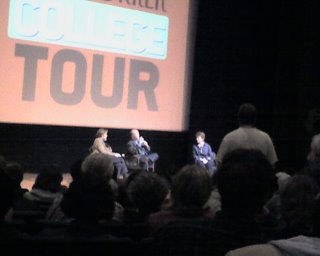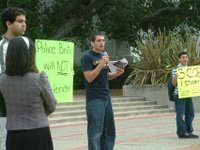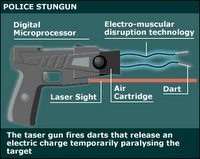Mark Danner at UC Berkeley;
Democrats Have no Plan about War in Iraq!
 What will happen after coming Democrats in Senate and Congress? Can they make any difference in areas they’ve been criticizing during the last years?
What will happen after coming Democrats in Senate and Congress? Can they make any difference in areas they’ve been criticizing during the last years?Mark Danner, longtime staff writer at The New Yorker, frequent contributor to The New York Review of Books ,and professor at Berkeley and at Bard, writes about foreign affairs and American politics, including Latin America, Haiti, the Balkans and the Middle East in a panel discussion at UC Berkeley said that people are angry and they push pressure on democrats to do their demands.
One of these demands is about post-war conflict in Iraq. Many people think the US should leave Iraq to harm less. Danner believes that Democrats have no plan for Iraq. At the time, according to a recent survey, more than 63 percent of American voters turned to democrats not because of their plans, but to object Republicans’ policies. It makes the situation harder for Democrats while the upcoming 2008 presidency election will strongly relate to the significant political change by Democrats. But how can control the war policies form senate and congress? “You can not run the war from congress and senate, that’s why democrats will have problem for the presidency”, said Mark Danner in a panel discussion at UC Berkeley.
Danner is one a member of Baker-Hamilton committee, who has led the US foreign policy to a new path. “One of the American officers told me that the difference between us and Iranians is that they have plan to secure the peace while we have not”, he said about the decision making process in Baker’s committee. He also mentioned that how Iran is in a strong position to deal with. “Empirical point is to believe what liberal hawks say, you have to be ignorant.”
An audience asked him about the options that Democrats are facing with. “There is no military solution. The UN should be involved, try to have contained failure,” he added. “The time for the US in Iraq is about to end and they have to leave… the amount of money has been stolen in Iraq is astonishing.
That was a inspiring panel, while Mark tried to stand in the middle and give a clear perspective on what’s happening now. I think at the time a micro-tribal conflict is happening in Ira, you can call it civil war; it would be harmful for the Iraqis if the US troops leave there. Perhaps they can start about a time-table to withdraw Iraq. Even Mohammad Khatami, Iranian former President acknowledged that withdrawal would be a mess for the region. However working on a time-plan to leave Iraq will give positive signs to all sides of this conflict.
Watch Mark Danner's Interviews here















